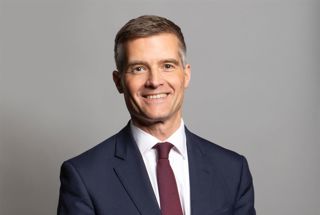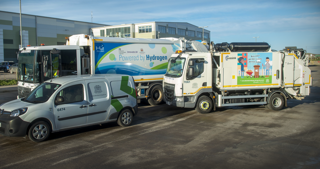The Transport Committee has urged the Government to abandon its “technology agnostic” approach to alternative fuels and wants greater certainty for the sector.
The Committee, which has a remit to scrutinise decisions made by the Department for Transport (DfT) has written to transport secretary Mark Harper, following a “disappointing” response to its Fuelling the Future report, urging ministers to put “more meat on the bone”.
Published on March 2, the report made practical recommendations on how to decarbonise fuel supplies across aviation, maritime, rail and road vehicles.
The Department for Transport’s (DfT’s) full response to the report can be found here.
Transport Committee chair Iain Stewart MP said: “My cross-party colleagues and I found the Government’s response to our report disappointing as it failed to properly address some recommendations and sidestepped a key point altogether – that its overarching ‘technology agnostic’ approach on future fuels is long past its sell-by date.
“We believe ministers need to move on from this and give greater certainty to investors and others about which fuels in each mode of transport they should be backing.
“On this and other points, I have urged the Secretary of State to write to us again with some more meat on the bone.”
Stewart did say there were some positives from the response, including the Government’s indication that it will assist the private sector in its race to produce low carbon fuels for aviation, as well as its plan for heavy goods vehicles (HGV).
He added: “We remain concerned the Government has not fully thought through, or properly responded to, our scepticism about expecting ordinary motorists to bear the financial burden of transitioning to all-electric vehicles.
“We maintain that it is realistic and fair to expect a significant number of motorists to continue using hybrid or conventional-engine cars for years ahead.
“Synthetic low-carbon fuels that can be used in these engines without expensive modifications should be supported as a halfway house for a significant number of private car owners.”
Response on electric vehicles
The Committee made recommendations that the Government should facilitate the continued use of hybrid and petrol vehicles that could utilise synthetic drop-in fuels.
The Committee said this could be a more “socially equitable” way of cutting emissions from private cars without the expectation of the vast majority of households needing to buy and charge electric vehicles, which some may struggle to afford.
The Committee also argued that this is a more realistic option, as it expressed doubts that the Government will be able to sufficiently scale up the availability of charging infrastructure to meet widespread demand.
The Government responded that it has “committed to making the transition to ZEVs affordable for everyone”, and that government incentives on infrastructure “are now targeted to where they will deliver the most impact and deliver the greatest value for money to the taxpayer”.
The Government also said drop-in fuels face constraints around their cost and availability.
The response reads: “The Government has committed to adopting a zero-emission vehicle (ZEV) mandate which will establish a trading scheme that will require car and van manufacturers to sell an increasing share of ZEVs each year from 2024, until a phase out from sale of all new non-ZEVs by 2035.”
It also said the majority of car manufacturers have committed to selling 100% electric cars by 2030. It also points to increased sales and falling prices of ZEVs.
Response on Heavy Goods Vehicles (HGVs)
Agreeing to the Committee’s recommendation, DfT committed to developing a “Zero Emission Heavy Goods Vehicles (HGV) Infrastructure Strategy” which, it said, will outline the use cases, associated infrastructure needs and energy requirements for a zero-emission road freight sector.
It said that “over the coming years”, hundreds of zero emission 40-44 tonne HGVs are expected to be on UK roads, along with the deployment of associated refuelling and recharging infrastructure, as part of its Zero Emission Road Freight Demonstrator Programme.





















Login to comment
Comments
No comments have been made yet.